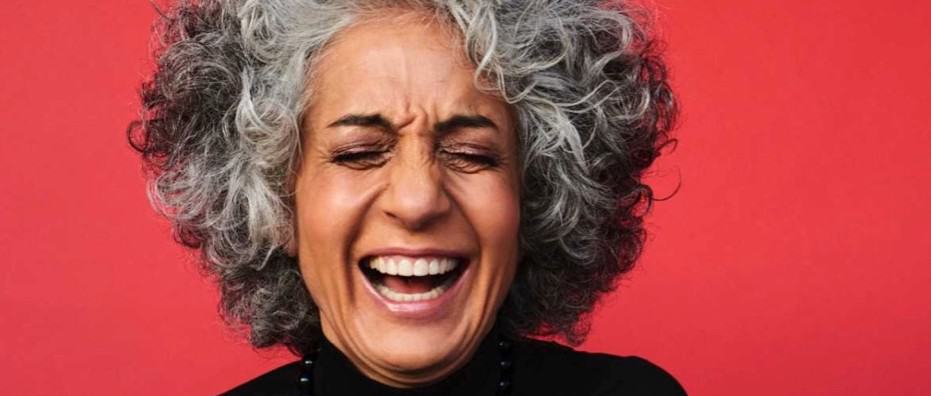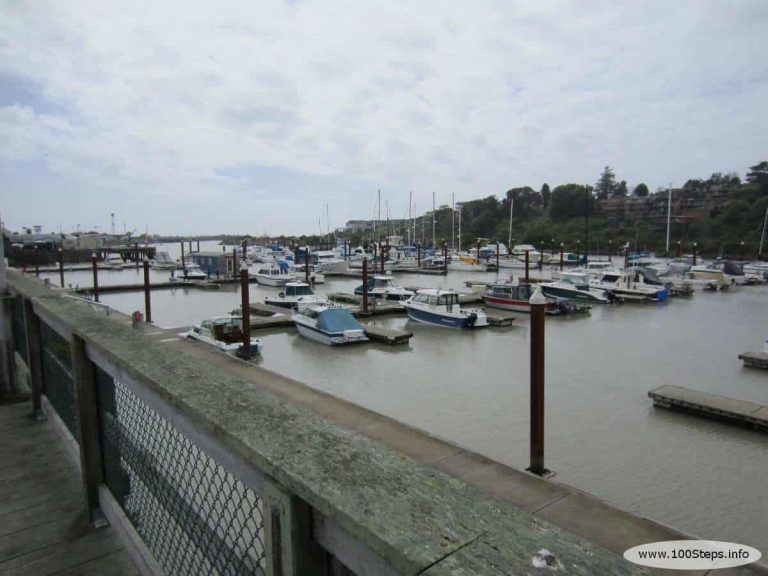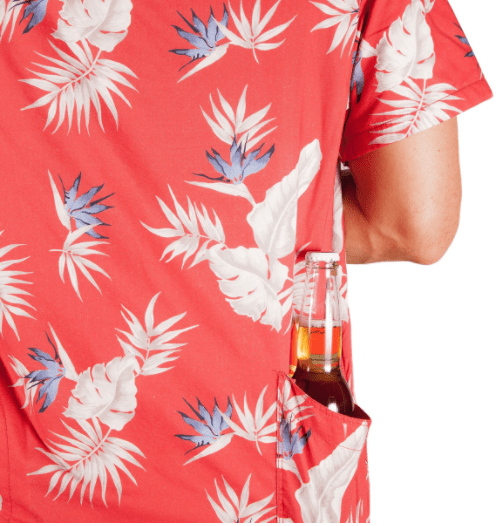Paroxysms of Pain and Laughter
My grandma had a padded toilet seat when I was growing up. This made using the loo somewhat like visiting an amusement park attraction. Not the polished, family-friendly Disney Land type funfair, but more along the lines of a shady side show from a traveling carnival, where something familiar is made odd and a bit off somehow.
The whoosh of air, “ka-POOF!” as I sat, always startled me. Movement emitted crinkly vinyl noises. And then there was the need to peel it off the back of my legs as I stood. Ugh. All this accompanied by the sweet scent of perfume mingled with the faintly musty odor that can pervade the homes of those in their later years.
Why would one willingly opt for a stuffed privy? It seemed unnecessary, undesirable, (and not particularly hygienic either).
Lately though, I’ve been reconsidering the merits of a cushioned commode. After resisting for years recommendations of many health-care practitioners – naturopaths, MDs, nutritionists, chiropractors, dietitians, and more – via videos, books, and blogs (all amply dotted with testimonials) claiming the consumption of only meat and veggies helps restore and repair your body – and in particular heal the brain – I finally succumbed. Maybe this would help.
I had tried the similar limited eating in 2004, at a time when I was comparatively healthy, with no obvious benefit. So why expect something different now? Well, I didn’t…but one can always hope. Already consuming a healthful diet of all the right buzz words – primarily organic, free-range, grass fed, home cooked, unprocessed, non-GMO, (when did eating become so complicated?) – eliminating the few gluten-free grains I ate along with fruit, legumes, and dairy was not a large shift for me anyway.
After a few weeks of austere eating, my body, apparently not getting the nourishment it desired, decided to consume my already waning muscle mass. My butt vanished over a period of about two weeks. Literally. I’m not kidding. I’ve always been more treble than bass in the booty department, but there’s no musical clef for this state.
Now with only skin between sit bones and porcelain, that lid has become incredibly hard, moving me into a realm of new understanding. Padded potties have a purpose.
Over Tipping / Tipping Over
Shortly after we were married, my husband and I both worked for a startup company located in the lovely mountain and ponderosa pine encircled community of Prescott, Arizona. On one occasion after a successful milestone, our group of twenty-somethings, less than a dozen employees total, was at the local municipal airport in the process of boarding a commuter aircraft bound for Phoenix Sky Harbor where we would proceed on to a company-sponsored ski trip in Park City, Utah.
The plane’s crew consisted of two: the pilot, plus the co-pilot who also served as steward and baggage handler. We boarded from the tarmac, alongside the compartment being loaded with our bags. Due to the climate of the destination and the recreational purpose of the trip, there was an unusual amount of luggage. Lugging suitcases accommodating bulky cold-weather garments, duffels of personal snow equipment, briefcases for laptops, the co-pilot labored under an extraordinary amount of gear.
As we passed him, one of our co-workers piped up to this weary fellow, “I have a tip for you.” How conscientious, I thought, wondering if I had any small bills in my purse, poised to start digging to find out. If memory serves me, our generous colleague rummaged in his pocket as he spoke. What he produced though was this sardonic response: “Lift with your knees!”
Eyes got big. Jaws dropped. Had he really just provided this disappointing and unwelcome advice?
(Curiously, ironically, his last name was “Wise.” To this day, over two decades later, whenever heavy objects are being maneuvered, my husband and I chuckle as we recall this remark and our wiseacre friend.)
A couple of years later the startup disbanded, product and concept solid yet business venture unsuccessful. No similar work in the area, those of us newly unemployed dispersed at different rates to other cities and states. My husband and I moved before our house sold, paying jobs given priority.
After about 6 months, our lovely ex-home was still on the market, so we returned to Prescott to see the house in person, give it some attention, and help it on its way to new owners. Coincidentally (or purposely in the bigger scheme of things), the same weekend a number of our prior workmates were also in town, so we planned to gather one evening, a final farewell.
Prior to employment at the startup, our wisecracking compadre had battled stomach cancer. He was granted remission during the three and a half years we all worked together. Soon after the company dissolved, his cancer returned with a vengeance. Regardless, or perhaps because of this, he attended the party. He only vaguely resembled the man we had known though, cheeks sunken, hair sparse, skeleton bulging, eyes over-large, a moving version of a prison camp victim photo.
After exchanging brief greetings with ebbing Wise, I moved on to chat with others. I told myself he was more my husband’s friend and that conversation shared between the two could be extended to me in my spousal role. I was handling “our” socializing with other party goers. All true, and yet not.
It is interesting how people respond when an acquaintance is dealt an affliction. Some are drawn in, wanting to help, but many, even lifelong friends, are unconsciously repelled. The reasons for a negative response are various: a barricade from the suffering, fear of the same for self, avoidance of helplessness, to name a few. Whatever the reason, their involvement in the life of those less able languishes.
In my evasion of Wise, I was guilty of a common practice: creating distance from those exiting this lifetime at a more rapid than average pace.
Out for Help / Helping Out
I recall once, already seated, watching the activities of others as they boarded a commercial airplane. On this occasion I saw a woman of petite stature ask the tall, strapping young man behind her – a stranger to her – to place her suitcase in the overhead bin. I’d seen my husband perform a similar act many times, in fact had come to expect it of him, even offering small services of this nature myself of him to others. But as I watched this unknown traveler, likely due specifically to my lack of relationship with him, what sunk in was the responsibility dealt one based on the attributes of one’s physical form. His head nearly touching the top of the fuselage, his shoulders broad, arms muscled, his youth – as a conscientious human, it was his lot to share his height and strength.
Similar story, differing abilities…for a few years I was in an exercise class designed to help keep the participants moving. Primarily attended by ages 60 to 80, I was the young one of the bunch. (I was also the most challenged by the exercises – but that’s another story.) One day while heading to class, as I neared the entrance, cane in hand but still wobbly (I was not yet wheelchair bound), a spry, buoyant classmate in her early 90s held the door for me. Half her age, I acquiesced to her offer with words of gratitude.
It has been tough to learn to accept such assistance. Trained from my early years in expressions of respect to those older, those same habitual courtesies reigned into my adulthood. Now on the receiving end of such aid, to again be the bestower would be a welcome prerogative.
Merry Gravity / Grave Merriment
Health, strength, mobility, these are not to be taken for granted.
My glute, quad, and hip muscles convulse with the slightest jostle, my ankles point erratically at awkward angles, my knees buckle together as if magnetized. Rising from lying supine is a struggle, prone is not a possibility, rolling over in bed is arduous, sitting for even a short time exhausting.
My own physical challenges have deepened empathy for others with outer afflictions, weakened and busted aversions, lessened uncomfortableness, mitigated embarrassment. Purpose has emerged from something previously misunderstood or presumed. A diminutive derriere turns a padded privy into an appreciated palliation. The act of holding a door, reaching a high shelf, or other gestures of outwardly assisting another has expanded beyond a learned mannerism into a privilege. Sharing moments with others, whether healthy or fading, has increased worth.
A change in life circumstances hastens a transforming viewpoint.







